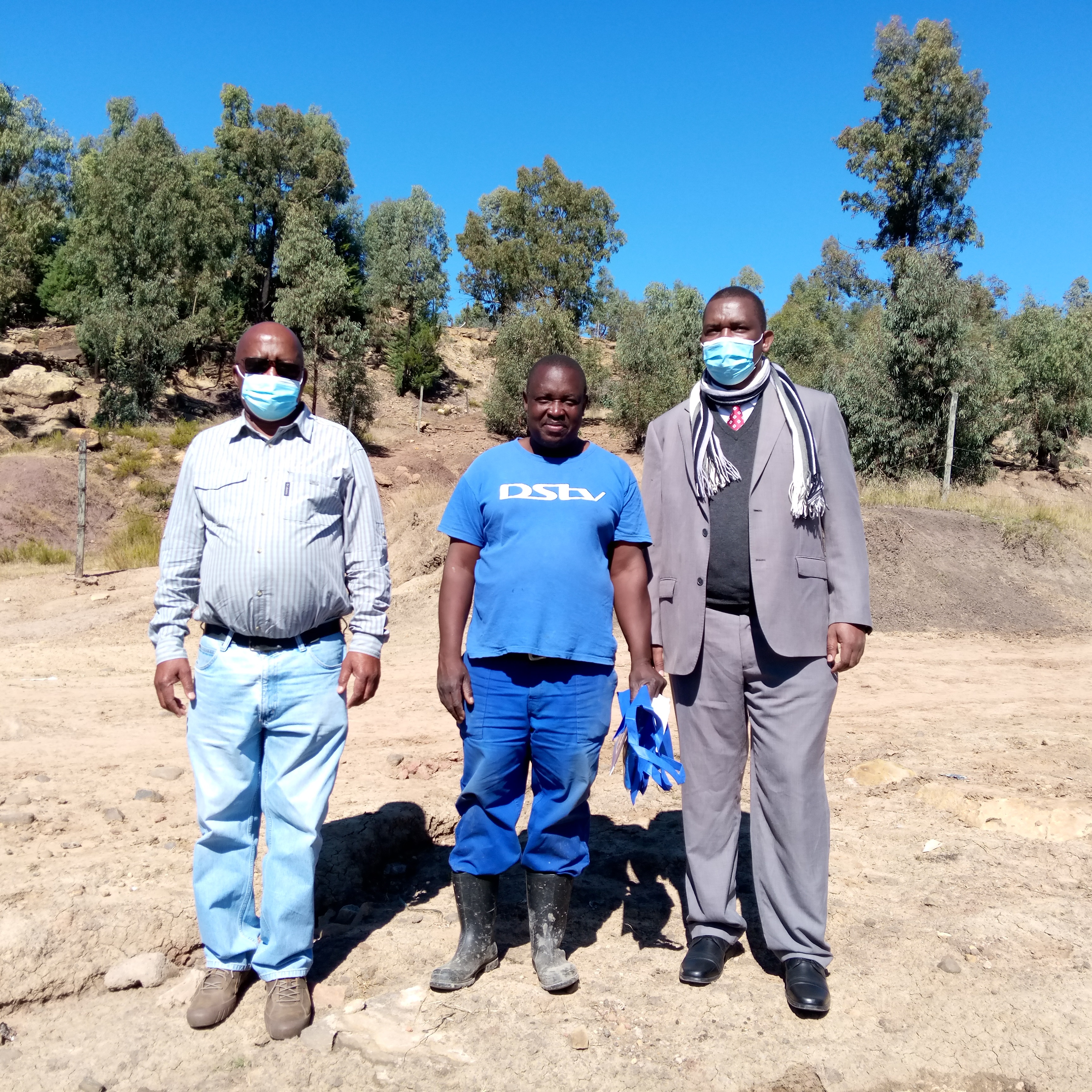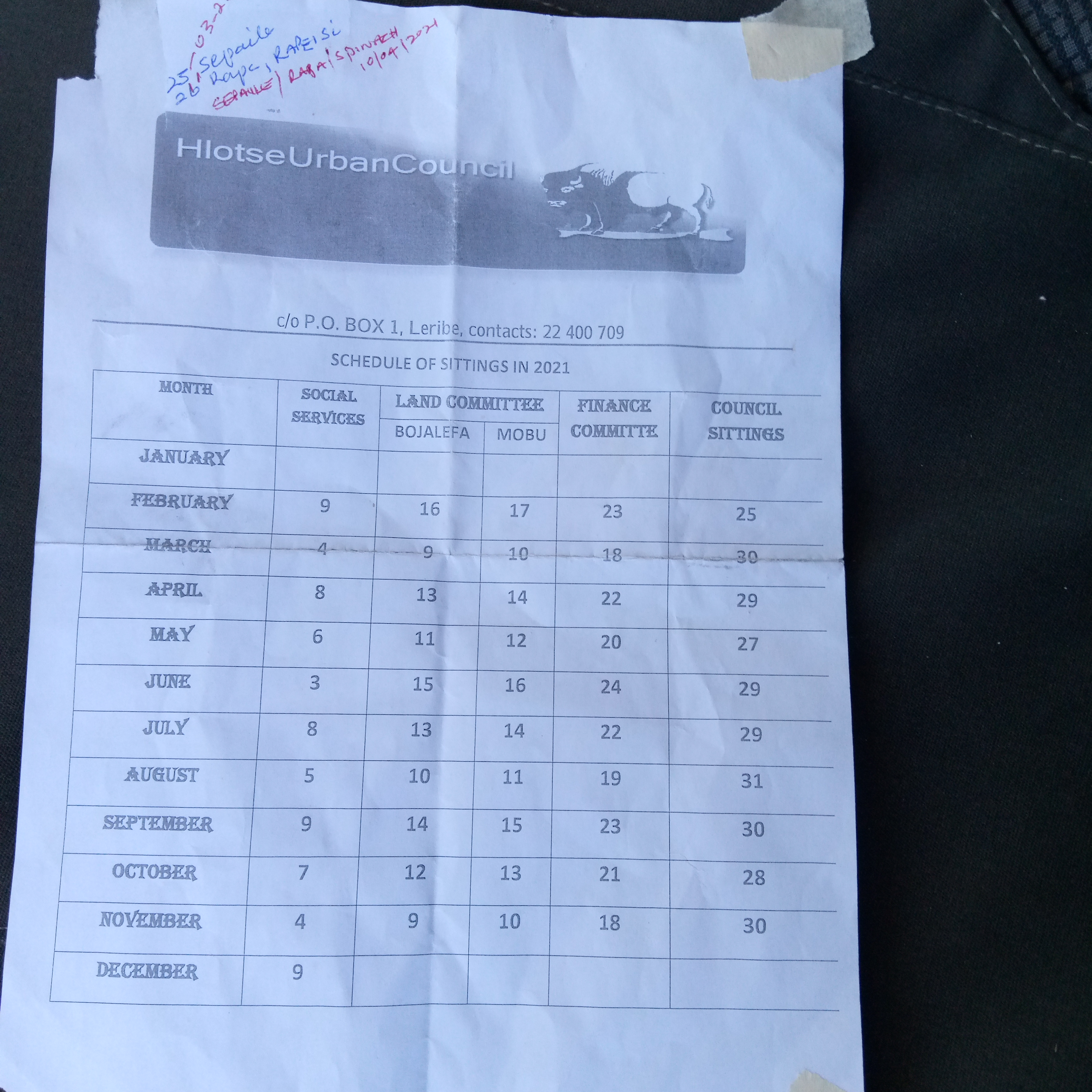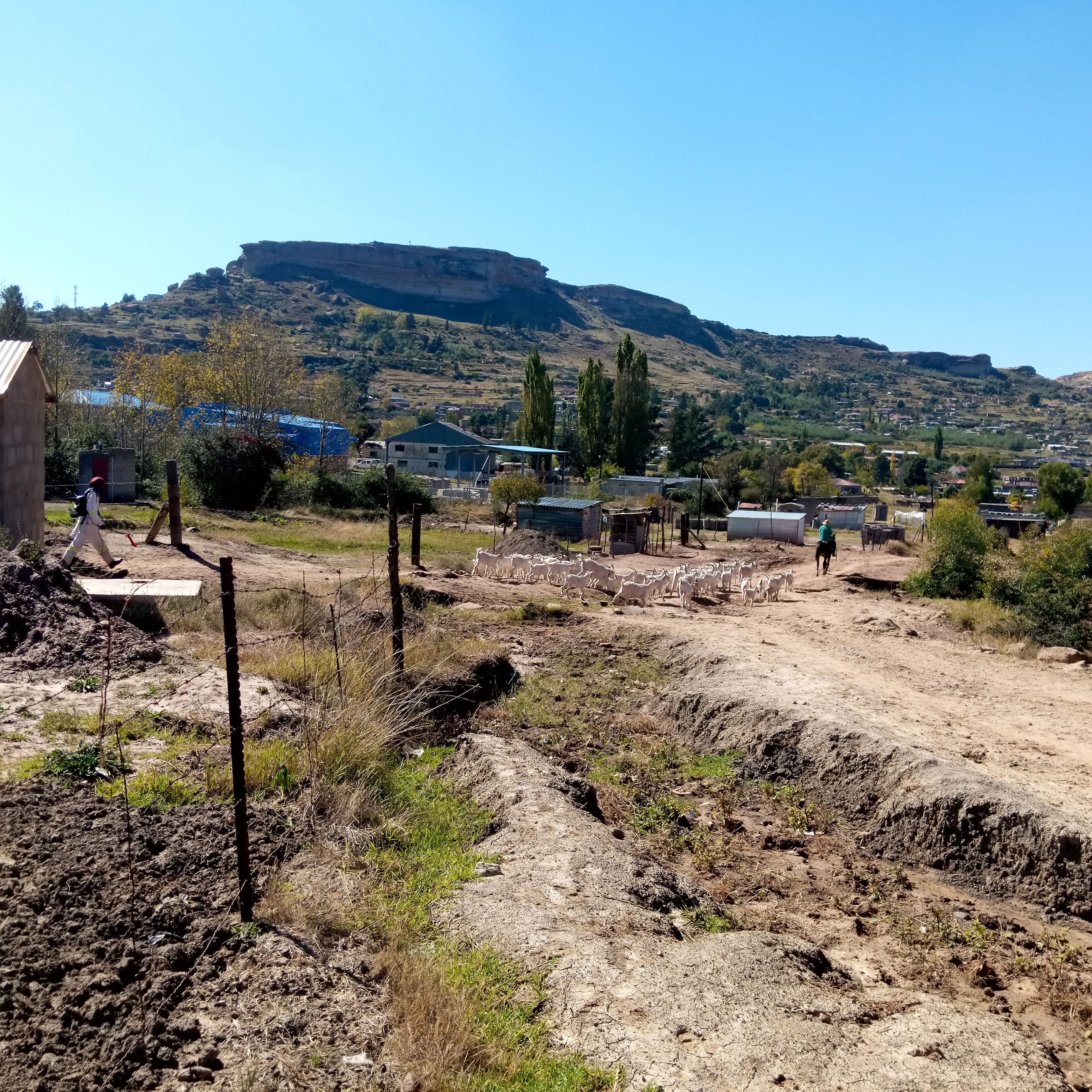The main objective of the mission undertaken by RCMRD's Director of Corporate Services Mr. Paul Idude and GIS Analyst Julius Buyengo was to familiarise RCMRD with Land Administration reforms targeting Rural Areas of Lesotho. This is aimed at reducing land-related transaction costs and inefficiencies, thereby unlocking the use of land as an economic asset.
The Rural Land Registration study falls under the second component, the Improved Capital Investment (ICI) project whose general objective is to support irrigated commercial horticulture in Lesotho as a well as other value chain ecosystems services related to the horticulture sector for which access to land, land titling and land market are important.
The study is targeting irrigation areas in Tsoili-Tsoili/Manka and Likhakeng in Leribe District and Phamong, in Quthing and Mohale’s Hoek Districts of Lesotho.

Activities undertaken
This mission accomplished the following activities:
1. Our initial activity involved having a physical meeting with our local consultants – Ms. Libakiso Matlho, the gender expert and Mr. Martin Ntsihlele the land regularization expert. Foremost, the meeting offered an opportunity for the RCMRD staff and the consultants to interact and get to know each other better. In this meeting, we discussed the expectations from either party (the client - RCMRD, and the consultants). We also undertook basic stakeholder mapping which involved identifying all the stakeholders to be consulted during the study. This included government institutions, Non-governmental institutions, key experts, the academia, and local communities. After key stakeholder identification, we discussed on the modalities of developing the data collection tools including the questionnaire to which the consultants made input based on the vast knowledge of the local environment.
The Local consultants participated in all the scheduled meetings that we had with LMDA.
2. We paid a courtesy call to the Permanent Secretary and the Commissioner of Lands at the Ministry of local Government and Chieftaincy. We notified them of our presence in Lesotho including the objective of the mission. All of them are aware of the project. Given the busy schedule, we were not able to meet the Minister.
3. The team undertook a reconnaissance visit to the targeted irrigation sites (by the study) in Leribe District. These are in Tsoili Tsoili/Manka. Teyateyaneng, an equally important area for the study was also visited. This visit help the project team to understand the baseline conditions, identifying the scope of the study, identify the actual and potential challenges/risks and develop appropriate mitigation measures. The visit also helped inform the overall approach and planning of activities.
4. The team also made contact and talked to other relevant organizations in relation to the project. These included USAID Lesotho, the Judiciary, Ministry of Agriculture, and the Land Administration Authority. Physical meetings were not possible and most preferred virtual discussions.
5. We also had interactions with individuals whom we thought are critical to the study. This includes Prof. Clement Leduka from the University of Lesotho and Mr. Peter Murenzi a Senior Judicial officer.
6. We had a courtesy meeting with our clients – Lesotho Millennium Development Authority (LMDA) where a detailed description of RCMRD and its services were presented. In attendance from the client’s side were, the CEO Mr. Keketso Chalatse, The head of Compact 2 program Mr. Thabo Foulo, The Stakeholder engagement expert Ms. Limpho Maema and the Land Specialist Ms. Mantsepi Ramoseme. RCMRD was represented by the above two staff and the local consultants. In this meeting, the issues that have been highlighted by LMDA in the remedy letter were ironed out.

7. Before we left Maseru, we had a meeting with the Local Consultants where we agreed on the tasks that they will handle on the ground while we are in Nairobi. This included development of content for the initial assessment report, given that we had received the introduction letters they would proceed with engagements with different persons/stakeholders. In this meeting, we also discussed indicative costs for transport, venue hire for meetings and meals for the participants.

CHALLENGES
a) Our progress of stakeholder engagement was hampered by the client’s late issuance of introduction letters (1 day before we left). While on ground, we could not proceed with stakeholder engagement activities without formal introductions.
WAYFORWARD
a) We will keep in touch with the local consultants as they proceed with ground activities. Engagements will be undertaken virtually. While in Nairobi, we will also give input into the project activities.
b) We will work with the local consultants in the delivery of the required reports as required by the study.
c) Our honest opinion is that the local consultants require a lot of support from us. We will try our best to support them virtually and if necessary will consult management on the possibility of a support mission to Lesotho.
d) Our initial assessment of the just concluded mission is that it was sufficient to kick off the ground activities. However, challenges might occur along the way. We will address them as they come along.
e) The local consultants need facilitation to undertake stakeholder’s consultations. Funds are required for transport, communication and meals in case of meetings. We will liaise with management to provide the required resources.













